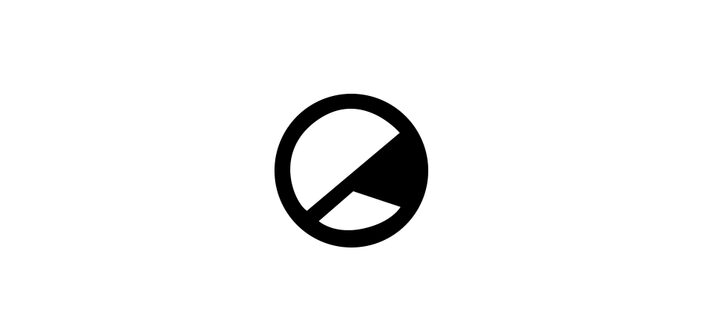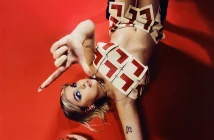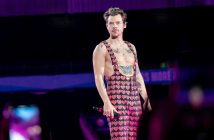It’s hard to pin Fontaines D.C. down. Poetic and post-punk in ethos, a little bit more rock ‘n’ roll in execution; one thing everyone can agree on is their alternative status. Their blistering live performances and authentic sound are making waves within the alternative music scene at home in Ireland and abroad. The quintet have just finished work on their debut album and are midway through their UK, Ireland, Europe and US tour. Conor Curley, one of the band’s two guitarists, chats to The Edge about Dublin and his attraction to making alternative music.
How would you describe Dublin as a theme in your music?
I think the whole idea of our sound and how the band started in Dublin. Very quickly we dived pretty deep into the history of Dublin and the bars. The venues where bands like The Dubliners would have formed. Trying to reflect their history and starting our own.
Is there an area or a place in the city that you haven’t been able to include in a song yet?
I think at this point, after doing songs like ‘Liberty Belle’ – which obviously involves an area of Dublin called The Liberties – we’re trying to be less on the nose about how we give shout out to Dublin and our surroundings and make our songs something a bit less obvious and write in a way that is more lofty and takes more interpretation.
You take inspiration from Dublin and Dublin based artists like Yeats and Joyce. Do you think the Irish capital has changed a lot since their time or is it still recognisable today?
I think it is recognisable in the voices of the people that you hear on Meath Street (a street in The Liberties) but at first glance it is definitely something that is escaping us rapidly. It’s definitely down to the gentrification and the way that Dublin is pulling itself into this new big business, Silicon Docks kind of city, where the people who really give life to the city are starting to get pushed out.
Do you think about the longevity of your own work?
Yes, I think about the longevity of our work a lot. Especially recently now we’ve finished our first album and are looking at doing the second one. I think there’s longevity there and the fact that our music is honest, you know? We didn’t try and write for a certain time, we wrote for ourselves, so I feel like longevity will come out of that. And for the work that we’re going to release in the future, I know that we’re gonna have the same attitude and through the phases of this album we’ve learnt a lot, so I’m really excited. We’ve been travelling so much now though, it’s almost better, especially with Irish culture, to have a perspective back on it. If you’re indulged in it, it’s kind of hard to see. But whenever we travel away, we kind of realise we’re listening to Irish songs and how much they can mean to people whenever you’re away from home.
How do you view the relationship between the mainstream and the alternative?
It’s a difficult one because everyone I know and everyone I work with is attracted to this idea of alternative music and not being in the mainstream. But it looks like now that, through those efforts, you end up being in the mainstream. Like, look at Idles, I love Idles and you can’t go into a pub in London now without seeing three people wearing Idles tee-shirts because they’ve come up bigger than what they‘ve set out to be, I think. Alternative music has taken over, and obviously you have to have the ambition to get there. I’ll always look at making music through an alternative lens. What’s the alternative to doing that? Making music to make money? That’s not our idea.
When you set out to form Fontaines D.C., was it important that you were a guitar heavy band?
We all put ourselves in Dublin to do music, and at that time, there were no real guitar bands going on. It was kind of after that period of the mid 2000s when guitar music wasn’t that appealing. We were all singer songwriter-y everyone-writes-for-themselves type of thing. Then we just kind of realised. I think we were at one of our houses and we were listening to Buddy Holly and The Stooges and that kind of idea really just ignited something in us; that we really thought that guitar music shouldn’t be done or shouldn’t be over. And obviously Girl Band coming up at that same time was another thing where they completely showed a whole other side of what you could do with a guitar/bass/drums setup and vocals.
What alternative music are you listening to?
I’m listening to a band that we’re on a tour with, that’s with Shame, called Sorry. I’m listening to them, at the moment, a lot. They’re an amazing band, I’m really into their stuff. It’s kind of like a subverted grunge band. It’s just really well put together music and luck[ily] enough I’ll get to see them on a good bit of that tour. So that’s what I’m listening to most at the moment. There’s a song called ‘Twinkle’, you should listen to it.
Watch the music video for ‘Boys In The Better Land’ below.




![Midge Ure on Legacy, Live Aid, and his upcoming ‘Catalogue’ tour: ‘The idea that there could be an [AI] Ultravox in 40/50 years from now is terrifying’](https://theedgesusu.co.uk/wp-content/uploads/2024/03/download-214x140.jpg)